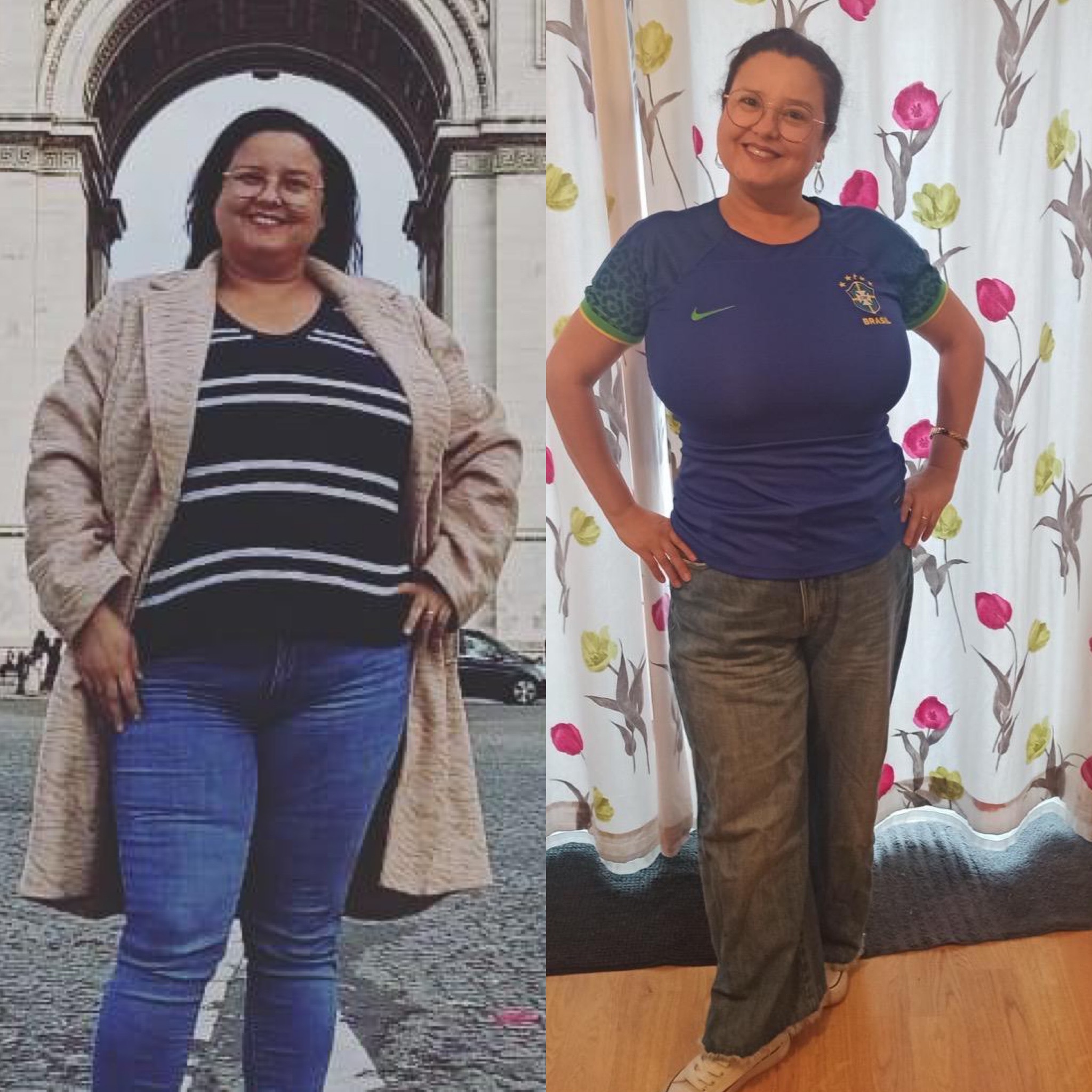Plant-Based Diet: Is It For Everyone? Discover the Benefits and Considerations

Plant-based diets (PBDs) have gained popularity among those seeking to improve health and reduce the risk of metabolic conditions such as obesity, Diabetes, and cardiovascular diseases. In addition to their health benefits, PBD is known for its positive environmental impact, being a more eco-friendly choice that conserves natural resources and that can also be adapted for religious and cultural reasons. But is it for everyone? Learn more here about the benefits and considerations of PBD written by a nutritionist.
What are Plant-Based Diets (PBDs)?
PBD focuses on minimally processed plant foods, such as vegetables, fruits, whole grains, legumes, and nuts. Vegan and vegetarian diets are types of plant-based diets that eliminate or significantly reduce the consumption of animal products and processed foods.
Why should we include Plant-Based Diets as a nutritional strategy?
Plant-based diets are rich in fibre, vitamins, and minerals, and contain less saturated fats compared to other more common diets. Another positive aspect is that they are low in calories, as the majority of the diet consists of vegetables.
By providing a high content of antioxidant nutrients and potentially improving body inflammation, PBDs can positively influence the body’s functioning. Therefore, they can also be considered effective in treatments for weight loss, cardiovascular diseases, gut health, and reducing blood glucose levels.
Depending on the medical life history and preferences of each individual and the presence of any chronic conditions, a nutritionist can assist in designing and incorporating a well-balanced plant-based diet into your routine. They will provide personalised guidance on which foods to eat, nutrient combinations in each meal, and the potential positive effects of planning PBD as a nutritional strategy at that time.
Who can benefit from PBD?
PBD can be used by people of all ages, including pregnant women, children, adults, and older people. Each life stage has specific nutritional needs, so the diet should be tailored to each age group. Athletes and physically active individuals can also benefit, provided the diet is adjusted to meet their nutritional needs and deliver the desired results in muscle growth and sports performance.
What are the benefits of a plant-based diet to your body?
The benefits of a plant-based diet are numerous. Due to their richness in phytochemicals, they can help prevent certain diseases and promote treatment for cardiovascular diseases, osteoporosis, obesity, and Diabetes Mellitus control, for example.
High blood pressure
Factors such as high blood pressure, weight gain, increased waist circumference, and atherosclerosis can negatively impact cardiovascular health. To minimize these effects, adopting a plant-based diet can be beneficial. Reducing the intake of saturated fats and refined carbohydrates while increasing fibre consumption can lower cholesterol levels and saturated fats, leading to improvements in conditions related to cardiovascular diseases.
Weight management
Fiber-rich diets, such as PBDs can help maintain a healthy weight and promote digestive health. Fibre, found in vegetables, fruits, and supplements, promotes satiety by stimulating hormones and neurotransmitters and forming a gel in the gut that reduces gastric emptying time. This not only enhances satiety and nutrient absorption but also aids in bowel transit and relieves constipation. For weight loss and gut health, including a plant-based diet may be considered after nutritional evaluation.
Gut health
The quality of the diet is strongly linked to gastrointestinal health and the balance of gut microbiota. A high intake of fibre and antioxidant nutrients can promote gut health by reducing inflammation. Fibre serves as food for gut bacteria, and by providing a variety of these nutrients, it is possible to improve microbiota diversity, as well as help control inflammatory bowel diseases. Furthermore, by maintaining the diversity of beneficial gut bacteria, there is a greater likelihood of improving immunity and mental health.
PBD, by promoting gut microbiota diversity through high vegetable consumption, may contribute to overall well-being. However, it is important to monitor and adjust the diet to meet individual nutritional needs.
Glucose levels
Moreover, a fibre-rich diet may help maintain healthy body glucose levels. Thus, combined with reduced consumption of processed foods and refined carbohydrates in a plant-based diet, the chances of reducing the development of type 2 diabetes may be increased.
Fertility
Another relevant issue is the relationship between diet and infertility. Nutritionally poor diets and sedentary lifestyles might contribute to unsuccessful conception. Adjusting the couple’s nutrition even before conception can be a positive factor for fertility. Foods in a Plant-Based Diet are particularly beneficial in this context, as they tend to reduce inflammation due to their phytochemicals with antioxidant action and the ability to eliminate toxins in the body. This reduction in inflammation improves how well the body absorbs vitamins and minerals, making nutrients work better in different organs.
Can I gain muscle on a plant-based diet?
Regarding muscle mass gain, some people may question whether PBD offers the same support for maintaining and building muscles due to the amount of protein and amino acids they provide. However, plant-based diets, when well planned, can provide important nutrients for physical performance and muscle maintenance.
Leucine, a type of amino acid, is essential for building and maintaining muscles. In plant-based diets, it is possible to obtain a sufficient amount of leucine to achieve muscle gain goals. Therefore, during your consultation with one of our nutritionists, leucine will be taken into account in your meal plan to achieve the desired results.
When a plant-based diet is well-structured and includes the right combination of amino acids, vitamins, and minerals, the risk of nutritional deficiencies can be reduced. However, it is crucial to have proper follow-up when starting a plant-based diet to identify and correct any potential nutritional deficiencies.
Will I miss any vital vitamins on a plant-based diet?
To ensure complete and balanced nutrition, it is essential to provide daily essential nutrients such as proteins, iron, vitamin B12, vitamin D, and calcium. These nutrients must be consumed in adequate amounts to meet the body’s needs.
Vitamin B12, for example, is crucial for DNA synthesis and the functioning of the central nervous system, which is linked to brain functions. The B12 deficiency can lead to neurological changes and gastrointestinal problems. Therefore, in a PBD, it is advisable to check your vitamin B12 blood levels, consult a nutritionist to adjust the diet and if required use vitamin B12 supplements (supervised by a nutritionist). Good non-animal food sources of B12 include algae and nutritional yeast.
As for iron, a plant-based diet can meet the body’s needs for this mineral through sources such as legumes, whole grains, and dark leafy greens. Iron is essential for cell oxygenation, and physical and cognitive performance, and also contributes to immunity and bone strength. Thus, it is a vital mineral for everyone, regardless of the type of diet.
To ensure that all nutritional needs are met, all nutrients should be evaluated and incorporated into the plant-based diet through food and supplements.

Is there a trend towards PBDs?
Growing awareness of health and sustainability is driving the popularity of Plant-Based Diets. Guidance from one of our nutritionists can help personalize the diet according to individual needs and preferences, promoting a balanced and healthy approach to eating.
In conclusion, PBDs offer numerous health benefits and can be adapted for all ages and lifestyles, provided they are balanced to ensure adequate intake of all essential nutrients. PBDs are also considered more sustainable and may have a positive impact on mental health and fertility due to their ability to reduce inflammation and promote gut microbiota diversity. If you are considering adapting your diet to a plant-based diet, consult a nutritionist to ensure you have all the vitamins and minerals that your body needs to function well.
Get an action plan with a Free Assessment!
Get personalized insights to enhance your well-being and achieve your goals. In this 15-minute video call, we will listen to you and guide you on what you need to do.
Schedule Your Free AssessmentRecent blogs







